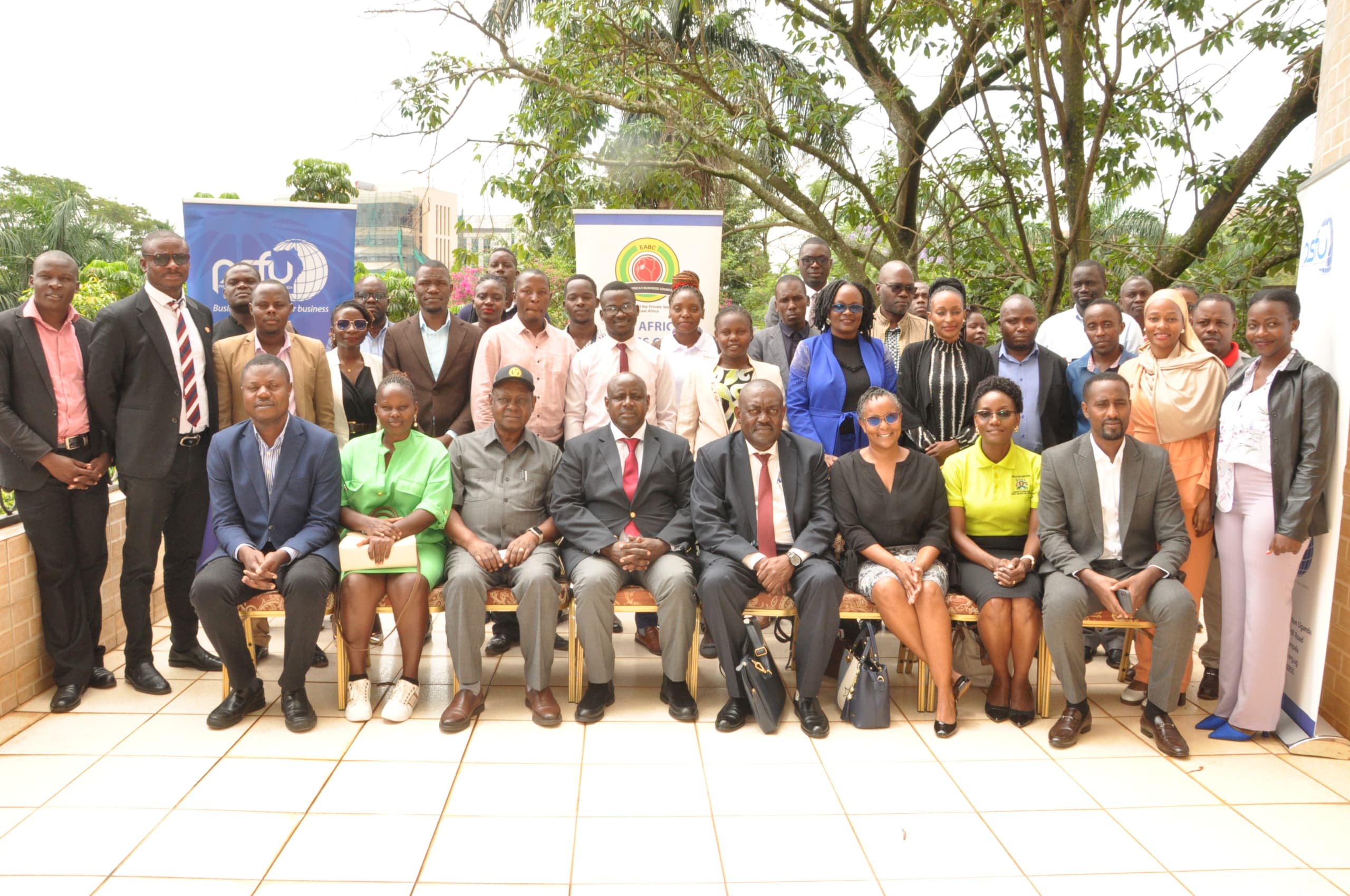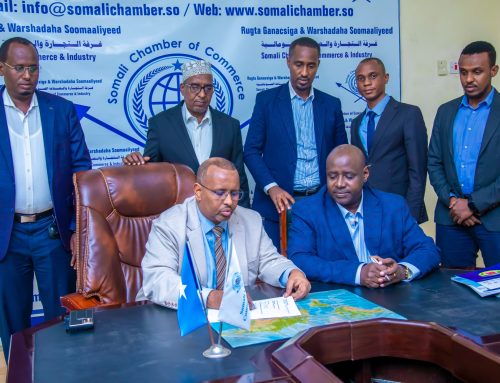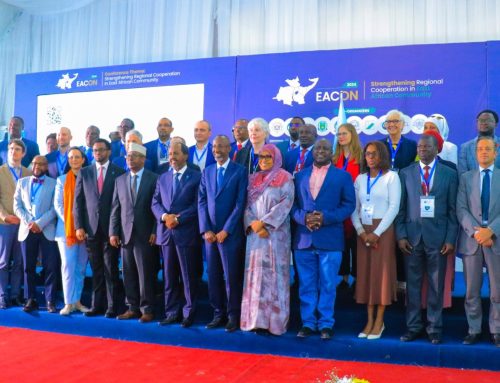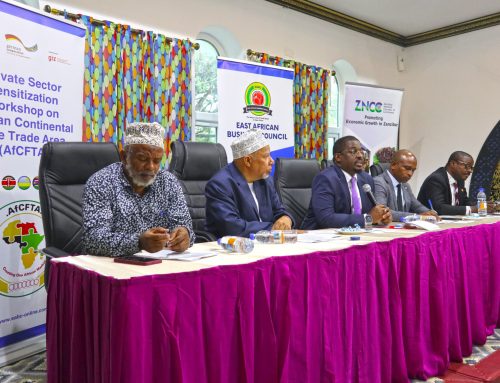Kampala, Uganda – 4th April 2024 – The East African Business Council (EABC), in collaboration with the Private Sector Foundation Uganda (PSFU) and in partnership with GIZ-EAC, successfully hosted a two-day national capacity-building workshop on “Export Readiness under the African Continental Free Trade Area (AfCFTA): Focus on Standards and Sanitary and Phytosanitary (SPS) Measures.” Held on April 3rd and 4th, 2024, in Kampala, Uganda, the workshop aimed to equip Small and Medium Enterprises (SMEs) and Youth Entrepreneurs with the knowledge and skills to export their products in the African market using AfCFTA trading instruments.
The workshop brought together key stakeholders from SMEs across various sectors, including agro-processing, food processing, apparel & textiles, leather & leather products, cosmetics, and dairy products sectors.
Dr. Paul Mwambu, Commissioner of Crop & Certification from the Ministry of Agriculture and Fisheries, stated that for Uganda to realize the full benefits presented by AfCFTA, it requires proactive engagement from the private sector, particularly SMEs and youth entrepreneurs – the backbone of Uganda’s economy. “These dynamic entities not only drive innovation and job creation but also embody the entrepreneurial spirit that is essential for sustainable growth,” he said.
He pointed out that some of the formidable challenges inhibiting SMEs and youth entrepreneurs from fulfilling their roles include compliance issues related to standards and sanitary and phytosanitary measures. “Tariff and Non-Tariff Barriers have also hindered their ability to tap into regional and international markets, limiting their growth potential,” he insisted.
In his welcoming remarks, Mr. John Bosco Kalisa, Executive Director of EABC, said Uganda is blessed with tremendous opportunities to export into African markets using AfCFTA trading instruments. He mentioned some of Uganda’s export potential to AfCFTA markets, including coffee, tea, mate, cereals, iron & steel, dairy products, and edible vegetables.
Professor Kwesiga, Executive Director of Uganda Research Institute, urged participants to ensure they penetrate AfCFTA markets by maintaining the volume, quality, and consistency of demanded products.
Mr. Lamech Wesonga, the representative of GIZ-EAC, which financially supported the workshop, stated that GIZ is committed to supporting Ugandan businesses in taking advantage of AfCFTA. “This workshop provided participants with the practical tools and resources they need to overcome export challenges and thrive in the AfCFTA market,” Lamech said.
In her opening remarks, Dr. Victoria Sekitooleko, a board member and representative from the Private Sector Foundation Uganda, challenged participants to think about what exactly they want to offer on the regional market. She stressed the need to address language disparities with trade partners and the urgent need to invest in robust human resource capacity building.
Facilitated by Experts from EABC, Ministry of Trade & Industry, Uganda National Bureau of Standards, and Ministry of Agriculture and Fisheries, the workshop covered various topics, including:
Understanding the AfCFTA and its benefits for Ugandan businesses
Compliance with AfCFTA rules of origin
Importance of standards and SPS measures in the AfCFTA
Strategies for meeting AfCFTA standards and SPS requirements
Accessing support services for AfCFTA exports
The workshop received positive feedback from participants, who appreciated the opportunity to gain valuable insights from industry experts.
“This workshop has been extremely helpful in understanding the AfCFTA and the steps I need to take to export my products,” said Derrick Paul, a young entrepreneur from Kampala. “I am now confident that I can compete better in the regional market.”





